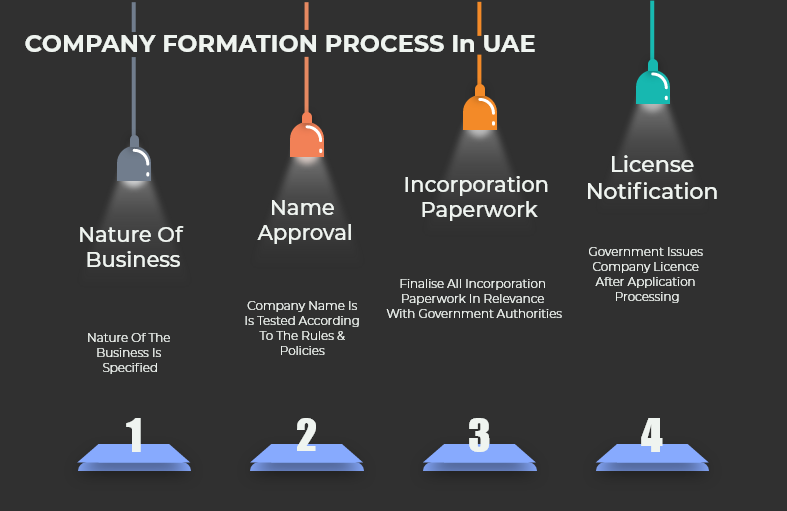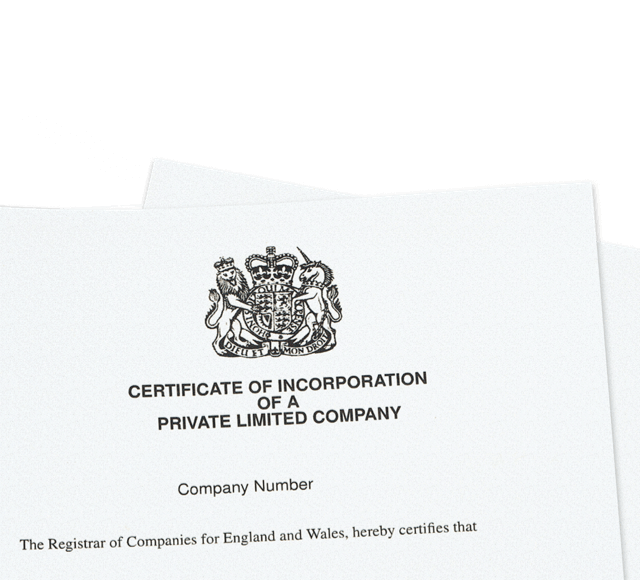Leveraging the Commercial Registration Electronic System for Efficient Company Formation
Leveraging the Commercial Registration Electronic System for Efficient Company Formation
Blog Article
Browsing the Complicated Globe of Business Development: Insights and Techniques
Starting the journey of developing a firm can be a daunting job, especially in a landscape where policies are frequently developing, and the stakes are high. As business owners set out to navigate the detailed world of company development, it becomes vital to equip oneself with a deep understanding of the elaborate subtleties that specify the procedure. From selecting the most appropriate organization structure to guaranteeing strict lawful conformity and designing effective tax planning techniques, the course to developing an effective business entity is riddled with intricacies. By unwinding the layers of intricacies and leveraging insightful strategies, entrepreneurs can pave the way for a solid structure that establishes the stage for future development and sustainability.
Company Structure Selection
In the world of business formation, the critical decision of selecting the appropriate organization framework lays the foundation for the entity's lawful and operational structure. The option of business framework substantially affects various facets of the organization, including tax, obligation, management control, and conformity requirements. Business owners need to thoroughly assess the readily available choices, such as sole proprietorship, collaboration, limited obligation company (LLC), or firm, to figure out the most appropriate framework that straightens with their service goals and conditions.
One common structure is the sole proprietorship, where the proprietor and the business are thought about the exact same lawful entity. Comprehending the subtleties of each service framework is vital in making an informed decision that establishes a strong groundwork for the company's future success.
Legal Conformity Essentials
With the foundation of a suitable company structure in location, making certain lawful conformity basics comes to be paramount for safeguarding the entity's operations and maintaining governing adherence. Lawful compliance is essential for companies to operate within the borders of the regulation and stay clear of legal concerns or possible charges. Secret legal conformity basics include obtaining the required permits and licenses, sticking to tax policies, executing appropriate data protection actions, and abiding with labor legislations. Failure to abide by lawful demands can cause fines, lawsuits, reputational damage, or perhaps the closure of the company.
To guarantee lawful compliance, business must frequently review and update their plans and procedures to reflect any kind of modifications in laws. It is also necessary to educate staff members regarding conformity requirements and offer training to minimize risks. Seeking lawful counsel or compliance specialists can further help business navigate the intricate lawful landscape and keep up to date with advancing policies. By focusing on lawful conformity essentials, companies can develop a strong structure for sustainable growth and long-lasting success.
Tax Obligation Planning Considerations

Furthermore, tax obligation planning should encompass methods to make use of readily available tax obligation credit histories, incentives, and deductions. By tactically timing earnings and expenses, businesses can potentially lower their gross income and general tax burden. It is also crucial to stay educated regarding modifications in tax regulations that might impact the service, adapting strategies as necessary to stay tax-efficient.
Furthermore, worldwide tax planning factors to consider may arise for organizations operating across boundaries, including complexities such as transfer rates and foreign tax obligation debts - company formation. Looking for assistance from tax obligation experts can help browse these intricacies and create a detailed tax strategy tailored to the business's needs
Strategic Financial Administration
Reliable financial administration includes an extensive strategy to looking after a company's monetary that site resources, investments, and overall economic wellness. By developing detailed budgets that align with the company's objectives and purposes, organizations can allot sources efficiently and track performance against financial targets.

Keeping an eye on cash inflows and outflows, managing operating capital efficiently, and guaranteeing enough liquidity are important for the everyday operations and long-term feasibility of a business. By identifying monetary risks such as market volatility, credit scores threats, or regulative adjustments, business can proactively carry out procedures to protect their monetary stability.
Furthermore, monetary reporting and evaluation play a vital function in strategic decision-making. By producing accurate economic records and conducting comprehensive analysis, services can acquire important understandings into their financial performance, recognize areas for enhancement, and make educated tactical options that drive lasting development and profitability.
Growth and Development Strategies
To drive a company towards increased market existence and productivity, strategic growth and expansion methods have to be thoroughly devised and implemented. One efficient method for development is diversity, where a firm gets in new markets or deals brand-new services or products to lower dangers and capitalize on arising opportunities. Another technique is market infiltration, concentrating on raising market show to existing items in existing markets with aggressive advertising or rates techniques. Furthermore, calculated partnerships or partnerships with other companies can supply access to new resources, innovations, or markets that speed up growth. Furthermore, procurements and mergings can be strategic for expanding market reach, obtaining affordable advantages, or acquiring key ability. It is critical for business to conduct comprehensive marketing research, monetary evaluation, and threat analyses before starting any development method to guarantee sustainability and success. By meticulously intending and carrying out growth strategies, business can navigate the complexities of development while optimizing value for stakeholders.

Final Thought
Finally, browsing the intricacies of business formation calls for cautious consideration of service framework, legal conformity, tax obligation planning, economic management, and development techniques. By strategically picking the ideal company framework, guaranteeing lawful compliance, intending for tax obligations, managing funds efficiently, and applying growth approaches, companies can establish themselves up for success in the competitive company setting. It is necessary for businesses to approach company development with a extensive and strategic frame of mind to accomplish long-lasting success.
In the world of company formation, the essential decision of choosing the proper service structure lays the foundation important site for the entity's legal and operational framework. Business owners must very carefully review the available choices, such as single proprietorship, partnership, limited obligation firm (LLC), or corporation, to identify the most appropriate framework that straightens with their business goals and scenarios.
By developing detailed budgets that align with the business's goals and goals, services can allot sources successfully and track efficiency versus financial targets.
In conclusion, navigating the complexities of company formation requires careful consideration of company structure, legal compliance, tax planning, economic monitoring, and development approaches. By strategically picking the appropriate organization framework, making certain lawful compliance, intending for taxes, handling finances effectively, and implementing development approaches, firms can establish themselves up for success in the affordable service atmosphere.
Report this page